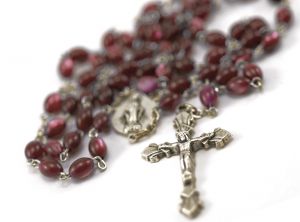 The extraordinary media outpouring over the canonisation of Mary McKillop this week shows that there is still a deep yearning for something spiritual in the Australian psyche.
The extraordinary media outpouring over the canonisation of Mary McKillop this week shows that there is still a deep yearning for something spiritual in the Australian psyche.
Despite our insanely hedonistic and materialistic outlook on life in this culture, there is still something deep in the hearts of Australians that is searching for something more. Whatever we might think of the theology of having someone made a ‘saint’, the fact that it has created such an outpouring of interest is evidence that Australians are not satisfied with what we can simply see and touch. We have a longing for something more than what this life offers. There is a yearning deep in the heart of everyone – a God-shaped hole as it has been called in the past.
The irony of all of this though is shown in the fact that the marketers have been cashing in big-time on the whole show. You could buy anything from Mary McKillop t-shirts to jewelry to keyrings in the last couple of weeks. The Sunday Age even had a poster of her. As Midnight Oil sang many years ago, who can stand in the way when there’s a dollar to be made?
Another observation from the canonisation of Mary McKillop is that is refreshing to have a good news story come out of the Catholic Church. When there has been so much pain from the stories of child abuse to come out of the Church, the story of someone like Mary McKillop, who specifically stood up against the sexual abuse of children, is one to celebrate.
I also wonder if some of the appeal of the canonisation of Mary McKillop comes from the fact that there is something uniquely Australian about her standing up against authority. She was excommunicated for uncovering sexual abuse – she stood up for the underdog (including the poor), and she was a local. She was one of us, someone who we could all relate to.
The canonisation of Mary McKillop reveals much about the Australian soul. There is hope yet for Christian faith in this country. If only we could do a better job of showing Australians that Jesus would also have fit right in amongst Australian culture. He too was a rebel against authority, not just for the sake of being a rebel, but for standing up for the underdog and a fair go, to show that all are welcome in the Kingdom of God. We would do well to pray that the Australian soul will be awakened by the story of Mary McKillop.




Well siad, Nils. And good observations.
I wonder what authority did Jesus rebel against? Did he rebel against a human authority, or God’s authority? Did he speak up against the prevailing social, economic, political and religious systems? (Was he totally unhappy with them? Was he happy with some elements of them?) Or did reject the Law, the Prophets and the Writing entirely?
These are rhetorical questions. But I think they need to be asked – because our answers will determine how we understand the role and the place of the church today.